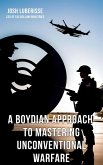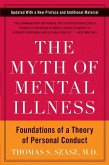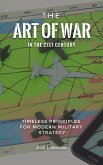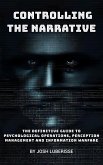The book explores historical precedents and modern applications, offering a detailed analysis of self-defense, humanitarian interventions, and the prevention of atrocities. It critically examines the impact of technological advancements, such as AI and autonomous weapons, on the conduct of war. Through rigorous ethical analysis and case studies, the author addresses the complexities of applying Just War principles in today's geopolitical landscape.
"Waging Just Wars" also highlights the importance of legitimate authority, right intention, and proportionality in the decision to go to war. The book discusses the ethical challenges of ensuring that military actions align with these principles and the necessity of exhausting all non-violent options before resorting to force.
Additionally, the book provides insights into the treatment of prisoners of war, the use of prohibited weapons, and the ethical considerations of modern warfare tactics. The analysis extends to post-war responsibilities, emphasizing the need for fair treatment of former enemies, reconstruction efforts, and accountability for war crimes.
This scholarly work is essential reading for national security researchers, scholars, policymakers, and ethicists. It offers a nuanced understanding of how ethical and legal standards can guide the conduct of warfare, ensuring that the use of force is both morally justified and legally compliant. With its thorough examination of Just War Theory and its application to contemporary conflicts, "Waging Just Wars" is a vital resource for anyone seeking to navigate the moral complexities of modern warfare.
Dieser Download kann aus rechtlichen Gründen nur mit Rechnungsadresse in A, B, CY, CZ, D, DK, EW, E, FIN, F, GR, H, IRL, I, LT, L, LR, M, NL, PL, P, R, S, SLO, SK ausgeliefert werden.









